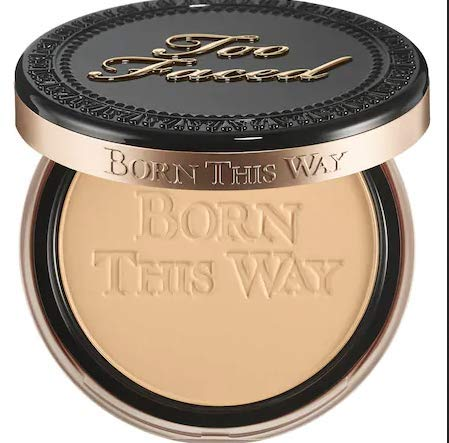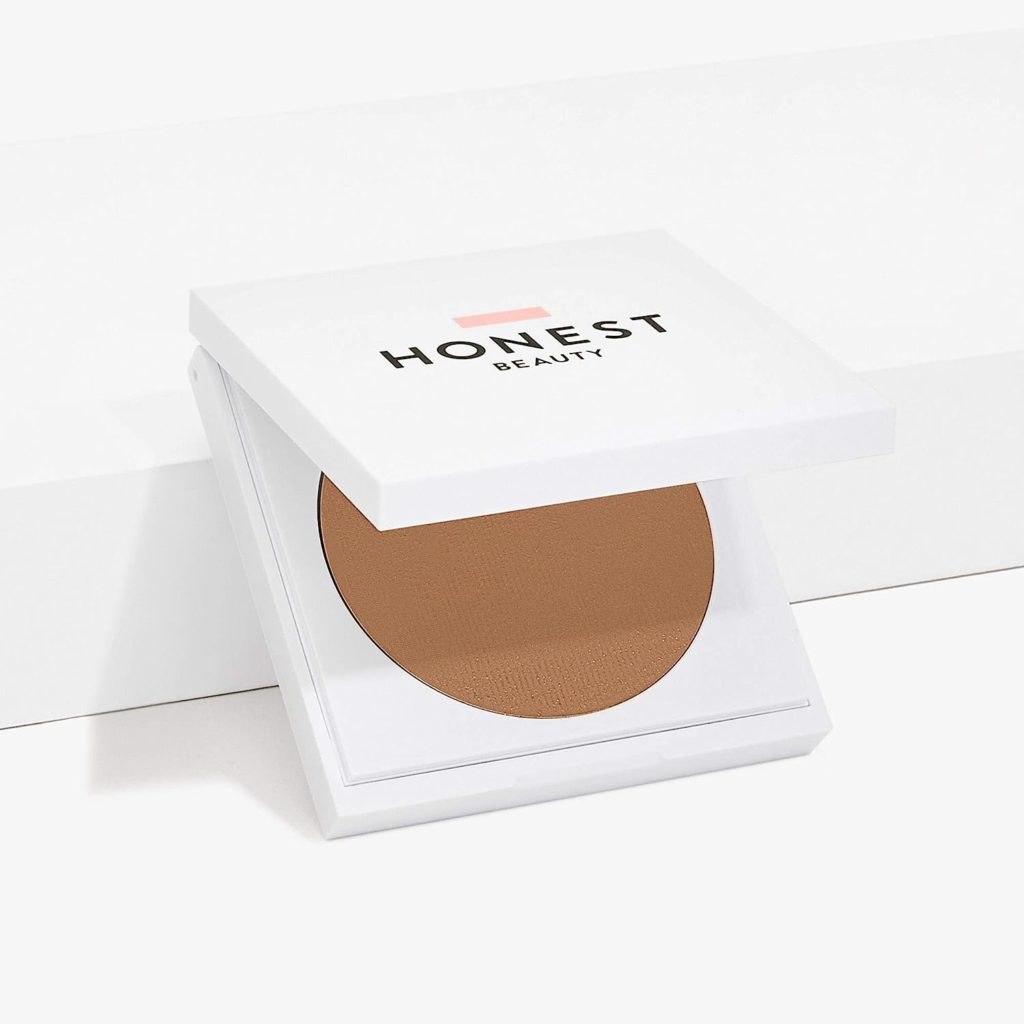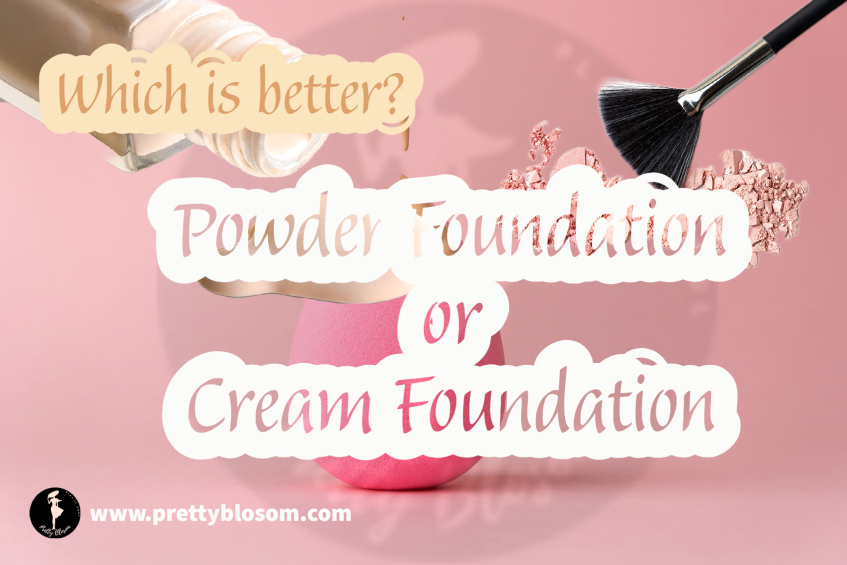Choosing the Perfect Foundation: Powder vs. Cream for Flawless Coverage and Long-Lasting Wear
There are different types of foundations found in the market like powder foundation or cream foundation, and it can be tough to decide which one is right for you, as a beauty enthusiast always on the quest for flawless coverage and long-lasting wear, I often find myself torn between the two popular options that are powder foundation and cream foundation. The decision to choose the right foundation can be overwhelming, considering the diverse range of products available in the market. In this blog post, I aim to shed light on the age-old debate of powder foundation versus cream foundation, exploring their unique qualities, benefits, and application techniques.
Powder foundation is a go-to choice for many due to its lightweight and breathable formula. It offers buildable coverage, making it ideal for those looking to achieve a natural, airbrushed finish.
On the other hand, the cream foundation has gained popularity for its hydrating and nourishing properties. It tends to provide medium to full coverage, making it suitable for individuals with more prominent blemishes or uneven skin tones.
Throughout this blog post, we will delve into the pros and cons of both powder and cream foundations, discussing factors like coverage, finish, longevity, and application techniques. By the end, you’ll have a clearer understanding of which option aligns best with your specific needs and preferences.
Join me on this exploration as we uncover the secrets behind achieving flawless coverage and long-lasting wear with powder and cream foundations. Let’s dive in and discover the perfect foundation match for your beauty routine.
The key difference and which is best: Powder Foundation or Cream Foundation
When it comes to choosing between powder foundation and cream foundation, the key differences lie in their texture and finish. Let’s explore these contrasting qualities in more detail.
Powder foundation

Comes with a dry and light texture, which offers a distinct advantage. It’s available in both pressed and loose forms, catering to individual preferences. One notable characteristic of powder foundation is its ability to provide a matte finish, which is highly sought after. It’s evident that many individuals desire a foundation that controls shine and delivers a smooth, non-greasy look. This makes powder foundation an excellent choice, particularly for those with oily skin.
cream foundation

It boasts a thicker and creamier texture. This quality makes it particularly suitable for individuals with dry or mature skin. The creamy texture of this foundation type helps provide additional moisture and nourishment to the skin, resulting in a coveted dewy finish. It’s worth noting that a dewy finish has become increasingly popular, as it imparts a youthful and luminous glow to the complexion.
By understanding the varying textures and finishes of powder and cream foundations, you can make an informed decision based on your skin type and desired look. Powder foundation’s matte finish is ideal for managing oiliness, while cream foundation’s dewy finish adds hydration and radiance. Consider your unique skin needs and the finish you desire, and select the foundation that best aligns with your preferences.
Pros and cons of A Powder Foundation
Pros:
Here are some of the main advantages of powder foundation:
Lightweight: Powder foundation is lightweight and doesn’t feel heavy on the skin.
Matte Finish: Ideal for oily skin as it provides a matte finish.
Controls Shine: Helps control shine and absorbs excess oil.
Quick and Easy Application: Powder foundation is quick and easy to apply, making it beginner-friendly.
Layering Capability: Allows easy layering without a thick or caked-up appearance.
Long-lasting: Powder foundation lasts well on the skin.
Versatile: Can be used on top of various cream or powder makeup products.
Wide Shade Range: Available in a wide variety of shades to suit different skin tones.
Blemish Coverage: Easier to cover blemishes as it is less likely to crease around them.
Suitable for Dry Skin: Some powder foundations are formulated for dry skin, such as those containing coconut water and hyaluronic acid.
Cons:
Now let’s take a look at some of the disadvantages of powder foundation:
Dry and Cakey Appearance: Heavy application of powder foundation can make the makeup look dry and cakey.
Limited Coverage: Compared to cream foundations and other formulas, powder foundations may not provide as much coverage.
Accentuates Fine Lines and Wrinkles: Excessive application can settle into fine lines and wrinkles, making them more noticeable.
Limited Shade Range: Some brands have a limited shade range, making it challenging to find the right match for your skin tone.
Requires Tools for Application: Unlike cream foundations, powder foundation cannot be applied with fingers and requires a brush or powder puff.
Pros and cons of A Cream Foundation
Pros:
Here are some of the main advantages of cream foundation:
Enhanced Coverage: Cream foundation offers higher coverage compared to powder foundation, requiring only a small amount for desired results.
Dewy Finish: Leaves the skin with a radiant, dewy finish, making it an excellent choice for dry skin.
Smooth Application: The creamy texture of cream foundation allows it to effortlessly melt into the skin.
Added Skincare Benefits: Some formulas include moisturizing properties or sunscreen, providing additional skincare benefits.
Flawless Full Coverage: Achieves a flawless full coverage look, ideal for photography and special occasions.
Versatile Application: Can be applied with fingers or a brush, offering flexibility and ease of use.
Cons:
Now let’s take a look at some of the disadvantages of cream foundation:
Not Ideal for Oily or Combination Skin: Cream foundation can make oily areas appear greasy, making it unsuitable for oily or combination skin types.
Thick Texture: The thicker consistency of the cream foundation can make the application more challenging.
Potential for Cakey Appearance: Improper application of cream foundation can result in a cakey appearance on the skin.
Pore Settling: In some cases, the cream foundation may settle into the pores, affecting the overall finish.
Learning Curve: It requires practice to master the application technique for the cream foundation.
Poor Quality Ingredients and Dry Skin: Some cream foundations with low-quality ingredients may worsen dry skin conditions.
Incompatibility with Powder Makeup: Cream foundation cannot be applied on top of powder makeup, limiting layering options.

